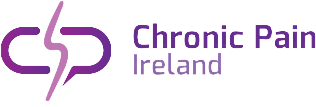Self-Management
- Home
- /
- Self-Management
Chronic Pain Ireland has been running self-management workshops for our members for over 3 decades. These intensive 2-hour interactive events give a speedy and effective insight into the benefits of self-management in relation to chronic pain.
Like many chronic long-term illnesses there is no immediate cure for chronic pain. However, implementing strategies or techniques through self-management can help reduce your pain, improve the quality of your life and put you, not the pain, in control.
Self-management strategies reviewed at our workshops
-
- Using Medication Appropriately
- Moving/Exercising
- Easing Tensions
- Improving Sleep
- Using Distraction
- Thinking Constructively
- Socializing/Recreate
- Improving Mood
- Using Good Ergonomics
- Managing Relationships
- Pacing Activities
- Values and Choices
- Consuming Wisely
Good health literacy is defined as the ability to seek, understand and utilise health information. If you are knowledgeable about your condition, you will be better able to self-manage and also deal with others who do not understand your condition.
Our self-management events are designed to provide you with the tools to self-manage and better understand your condition. Your physician may not have all the answers or for that matter any answer in treating your condition. It is a very complex health matter to deal with. Pain is invisible. Remember it is not your healthcare professionals’ responsibility to ‘cure’ you. You have to take more responsibility for the management of your condition.
Our self-management workshops are free for members of Chronic Pain Ireland.
You can access further knowledge and guidance on chronic pain in our Information Hub and Video Library.
. . .
The Chronic Pain Ireland and Pain Association of Scotland Partnership
In 2022, Chronic Pain Ireland formally partnered with the national charity Pain Association of Scotland. This partnership enabled the expansion and diversification of our online specialist education, training and support in the self-management of chronic pain
The Pain Association of Scotland is unique, having pioneered the development and delivery of self-management training for those burdened with chronic pain. Both charities share the mutual aim to help improve the quality of life for chronic pain sufferers by supporting and empowering them to live independently in the community.
Our Mutual Aims:
-
- To help improve their quality of life despite the pain
- To facilitate a change in an individual’s locus of control
- To develop pathways to overcome challenges and limitations
- To provide a via exit strategy and encourage access to self-management at a much earlier stage of their journey, in particular GPs
- To promote the measurement of pain and patient outcome data collection to support future pain initiatives
- To encourage the provision of adequate training on pain awareness, assessment and treatment, being included in the education of all health professionals and in particular GPs
- To promote self-management initiatives within the community in response to local need
- To promote a reduced reliance on clinical services through collaborative working with a range of health and social care professionals and those with funding decision-making authority
The focus is therefore on introducing people to, and quickly building, self-management skills, thereby creating practical, positive change leading to an improved quality of life and well-being. Self-management means you being back in control, not the pain controlling you.
. . .
Helpful tips for self-management of chronic pain
-
- 99% of the time on your own – 1% with Healthcare professionals
- Establish baselines for regaining your fitness, set Goals
- Stress is the body’s response to a threat
- All your attention is on the threat
- Stress releases cortisol which speeds up nerve signals
- Anxiety/negativity sets in
- Catastrophising – thinking the worst
- Stress and Pain have a strong relationship
- Life causes stress/anxiety
- Understanding more about your condition
- Use distraction
- Do something you love doing
- Do something with meaning
- Think of what you can do rather than what you can’t
- Fillers – Drainers: fillers build up reserves, drainers reduce reserves
Testimonials from our members











